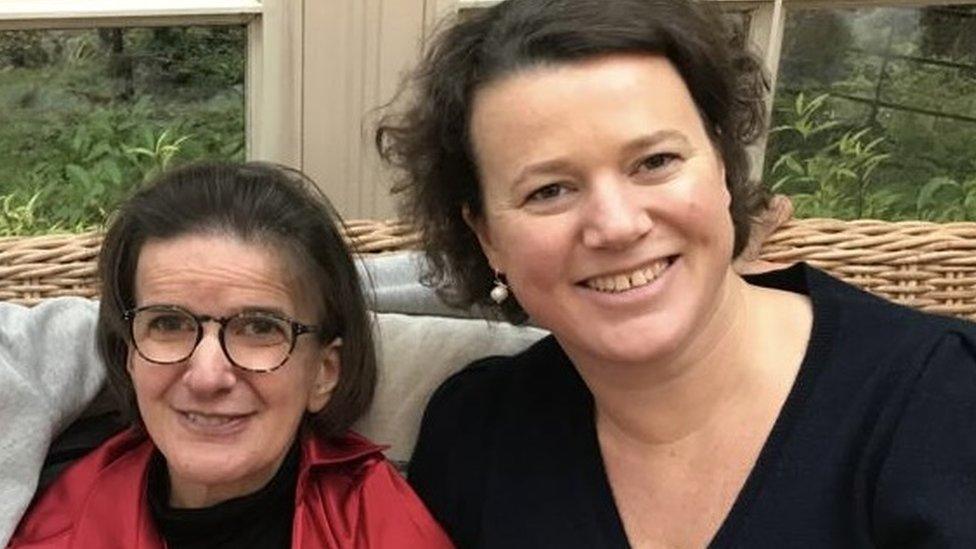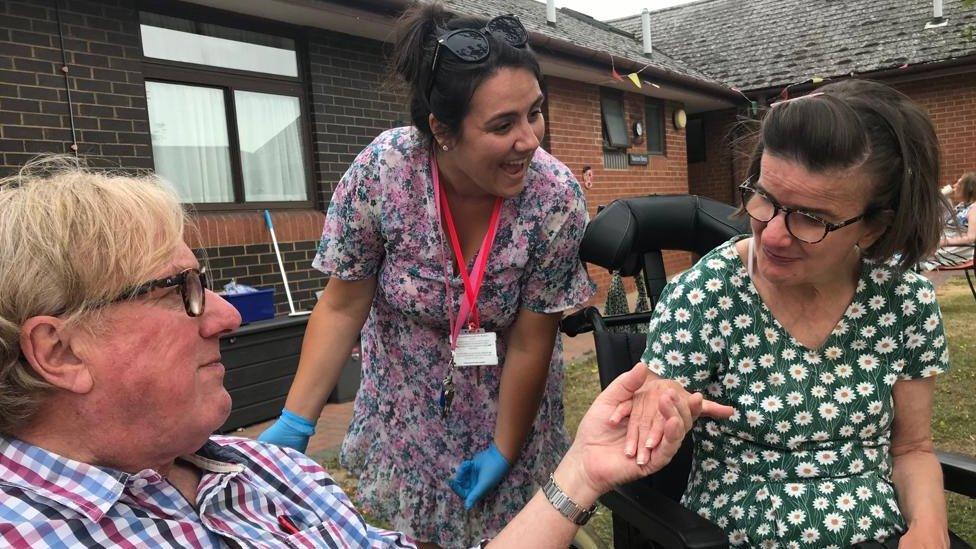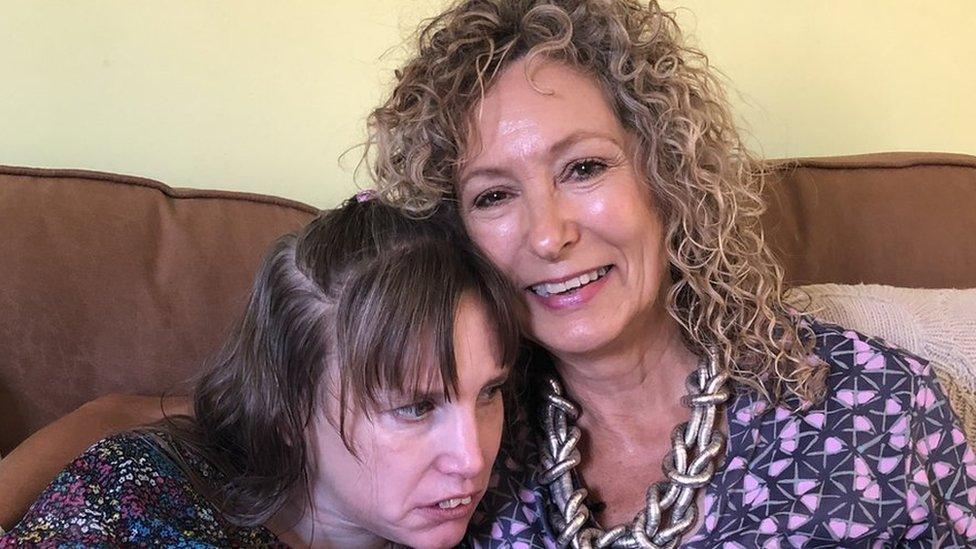St Elizabeth's residents face uncertainty after care home closure
- Published

Juliet Anderson's sister Jessica has lived at the home for about five years
Residents of an inadequate specialist home due to close face uncertainty over the standard of future care, the chair of the family association said.
St Elizabeth's Care Home with Nursing, in Much Hadham, Hertfordshire - for those with epilepsy and complex needs - will shut on 30 November.
Juliet Anderson, whose sister Jessica lives at the home, said "our big battle now is the safety of residents".
Hertfordshire County Council said it had "contingency plans in place".
The home was rated inadequate by the Care Quality Commission (CQC) earlier this year.
The CQC found the service "failed to ensure there were enough appropriately skilled staff to meet people's needs and keep them safe".
Ms Anderson, whose sister has lived at the home for about five years and needs one-on-one care, said: "We are rapidly reaching a point where we have residents on 30 November who have nowhere to go.
"Hospitals and emergency respite is not an option."
Ms Anderson said she was aware "some parents are being approached to take their children home - another thing we're not keen on because you have pensioners looking after people with disability, which is not a long-term viable option".

Jessica Anderson needs one-on-one care
Ms Anderson said: "Whilst they can go on and on about not having enough staff and it's unsafe, that's everywhere.
"But if you're moving people, which they are trying to, to other inadequate care homes, as rated by the CQC, the same thing will happen again."
Denise Azevedo's son Ben, 36, has cerebral palsy, epilepsy and scoliosis and has lived at St Elizabeth's for 12 years.

Ben has cerebral palsy, epilepsy and scoliosis
Ms Azevedo, from Sawbridgeworth, said he was "very sad" about the closure.
She said the "carers are absolutely wonderful" and as "devastated as we are".
"They don't want it to close and they've already said they will hold on to the very end because they just think the world of Ben and some of the other residents," she said.
The CQC said found "widespread and significant shortfalls in service leadership", and that "leaders and the culture they created did not assure the delivery of high-quality care".
On the search for a new home, Ms Azevedo said: "I've got to the point where I don't know where else to go, who else to phone. I sit on the computer until three in the morning still looking for places but it's not coming up with anything at all.
"It's absolutely devastating - I never expected this to happen.
"We are all panicking."
Hertfordshire County Council said it was directly responsible for 21 of the residents and the remaining 53 were placed by the NHS and other local authorities.
A spokesman said: "We are co-ordinating the work by the various local authorities and NHS bodies involved to make sure all the residents at St Elizabeth's are found suitable alternative placements before the home closes at the end of November.
"We have contingency plans in place to make sure that, even if new permanent placements can't be sorted out in time, all the residents will be safe and appropriately looked after while a long-term placement is arranged.
"Obviously this situation is not ideal, and it is difficult to find alternatives to the kind of specialist care St Elizabeth's has been providing, but we are working with residents and their families to make sure to make sure that residents receive the care they need and deserve within a CQC quality assured service rated good or outstanding."
In August, the St Elizabeth's Centre said it had experienced difficulties in recruitment and retention, partly due to a national shortage of trained care staff and this proved "overwhelming".
"To the point where we are no longer able to guarantee the safety of our residents, and are now increasingly unable to meet our regulatory requirements," it said at the time, and has not updated its statement since.

Find BBC News: East of England on Facebook, external, Instagram, external and Twitter, external. If you have a story suggestion email eastofenglandnews@bbc.co.uk, external
- Published21 August 2022
